Personal Safety & Injury Prevention
Communication
Styles
Communication Sytles
Assertive
Using assertive communication means that you stand up for yourself in a confident and respectful way.
Passive
Using passive communication means not speaking up for yourself, even when something bothers you or is unfair. A passive person will just agree with other + what they do. "Doormat"
Aggressive
Using aggressive communication is when someone tries to get their way by using a harsh tone/ name calling, abrupt/rude and body language.
Resolving
Conflict
Resolving Conflict
Refusal
Being refusal in conflict or peer pressure situations means saying "NO!" to do something that you know that isn't right or something that you don't want to do. Example: Saying "No I don't want to." clearly and confidently.
Delay
Delaying means to avoid the conflict like not answering. For example saying like maybe later.
Negotiate
Negotiating means working together to solve a problem in away that everyone can agree on. (Compromise)
How are all of
these topics
connected?
Social Media can connect all of these topics because it's a platform where all of these topics can act out on.
Resolving Conflict:
- Disagreements on social media can escalate quickly, so knowing how to solve conflict online can be really helpful.
Bullying vs Harassment:
- Social media is a common place for cyberbullying and harassment. This means someone might spread rumor's, or bother others online. So its important to recognize this and to stay safe.
Dangers of the use of Computers:
- Social media can contribute to some risks, like Online Safety Risks and Hacking/Viruses those examples can both happen on a social media platform.
Communication Styles:
- The way you communicate on social media (whether it's respectful or not) affects how others respond to you. Poor/Bad communication can lead to conflicts, bullying or harassment.
Overall social media connects to all these issues because it persuades us on how we interact, resolve problems and stay safe online. So BE SAFE!!!!

Dangers of the
use of
Computers
Using computers can be dangerous, it's important to use computers responsibly and appropriately. Some of the reasons why using computers can be dangerous are Hacking & Viruses, Cyberbullying, Online Safety Risks and Addiction.
BE CAREFUL

Types
of
Dangers
Online Safety Risks
Online Safety Risks:
If you're not careful online, you might end up talking to strangers that can pretend to act your age and act like your best friend. But in reality they're 50 years old and living in there moms basement talking to little girls all over the internet. That's why it's important to set some rules or boundaries for who you can add online.

Addiction
Addiction:
Spending too much time on computers, especially playing games or watching videos, can make it hard to focus on school or other after school activities. Examples: Homework, Any missing school assignments that are overdue and after school activities (sports and whatnot).

Cyberbullying
Cyberbullying:
People can send mean/rude messages, or even comment something rude on someone's post on social media. People can also post stuff that can intentionally hurt others. This can also include leaking things and stalking.
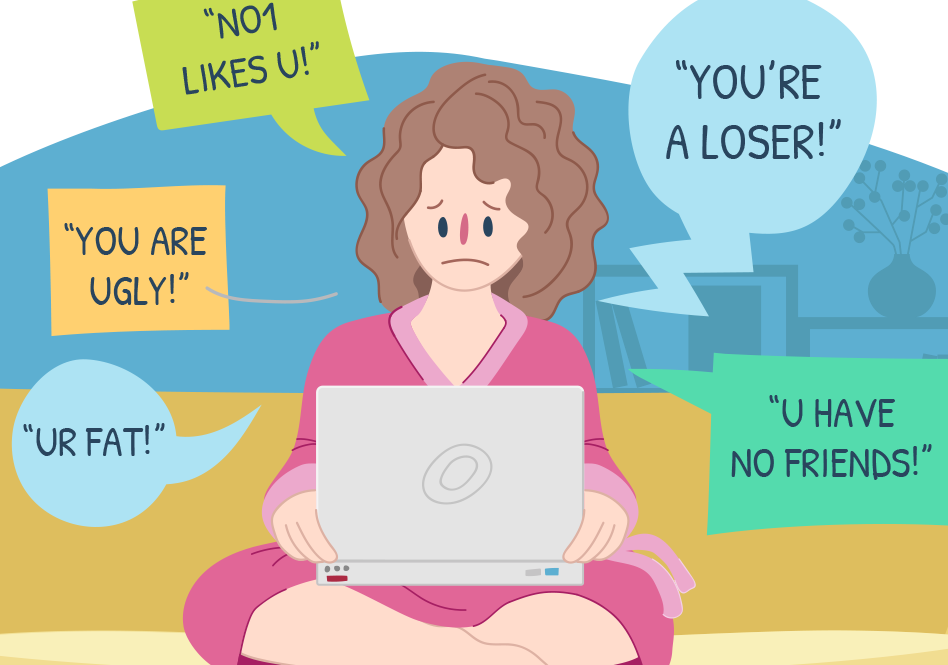
Hacking & Viruses
Hacking & Viruses:
Clicking on the wrong link can let hackers steal your information or can cause your computer to stop working
properly.

Bullying
vs
Harassment
People involved
in bullying
The Victim
The victim is the person who is being targeted by someone else (The Bully). This person is hurt emotionally or physically by the Bully's words or actions.
IMPACT ON THE VICTIM
- Lowered self-esteem
- Scared
- Nervous
- Sad
- Scared to go to school
- Depressed
/girl-getting-bullied-in-high-school-hallway-505845246-59552e943df78cdc29bf5c54.jpg)
The Bully
The bully is the person who uses their power over another person intentionally to hurt someone on a regular or on-going basis. This is a person who uses comments or actions to make someone feel unsafe.
IMPACT ON THE BULLY
- Might go to jail (if its that serious)
- Attention seeker
- Lonely
- Something might be going on at home so they take it out on others
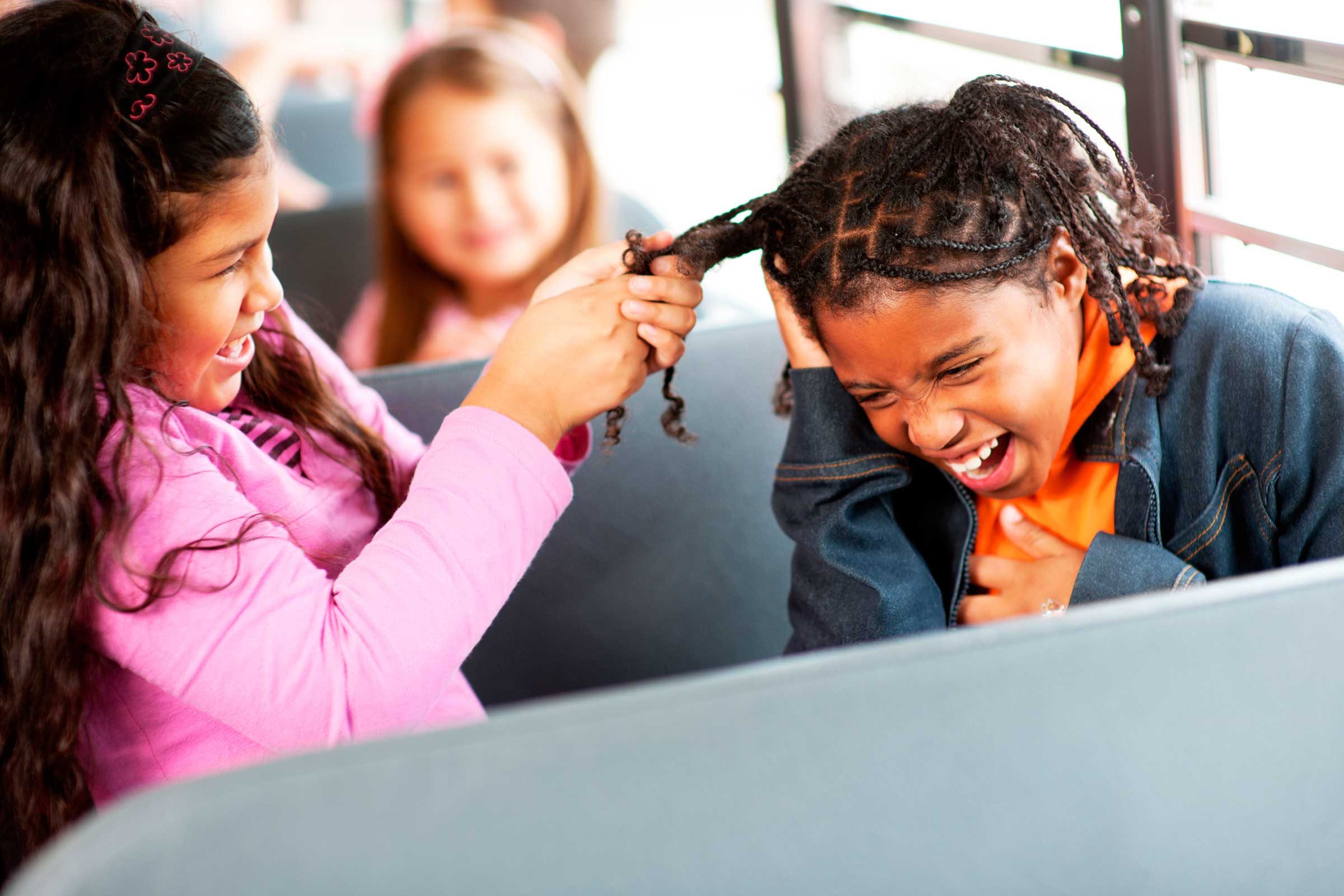
The Bystander
The bystander is a person who is not involved in the bullying or harassment, but who sees/hears what the bully is doing. The bystander also may see the harm caused to the victim. This is someone who knows what is going on, but who doesn't do anything to stop it.
IMPACT ON THE BYSTANDER
- Unsure on what to do
- Empathy
- Worried
- Scared they might get hurt

What is
bullying?
Bullying is very similar
to harassment but there is some
differences. For instance bullying
is a on going/continuous thing. Harassment
is not on going. And there is a power
imbalance between the people involved.
Bullying
Types of
bullying
Sexual
Sexual Bullying is when someone says or does mean things about another person's body, gender or private parts to make them feel uncomfortable or embarrassed. Examples are sexual touching, Sexting and Sexual Threats.
SEXUAL BULLYING
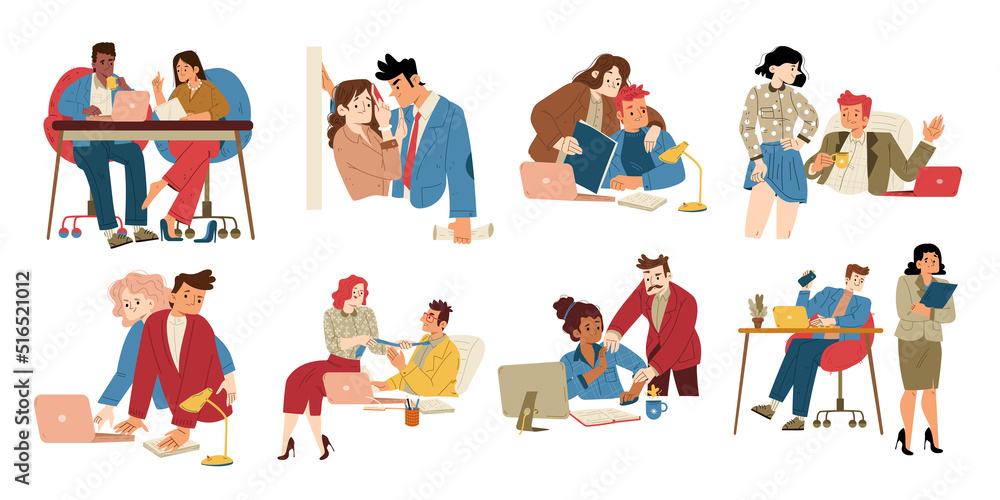
Electronic/Digital
Electronic/Digital, also called cyberbullying, is when someone uses phones, computers, iPads or social media to hurt or embarrass someone. This includes leaking personal things, stalking or commenting something rude.
CYBERBULLYING

Physical
Physical bullying is when someone hurts another person's body or damages their things on purpose. Some examples are fighting, assault and gang activity.
PHYSICAL BULLYING

Social
Social bullying is when someone tries to hurt another person's friendships or reputation. This can include spreading rumors, gossiping and being a fake friend.
SOCIAL BULLYING
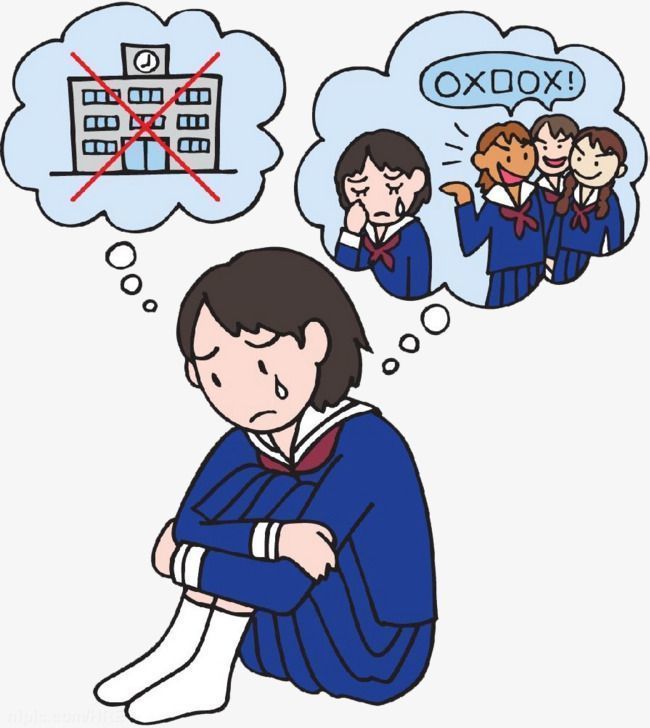
Verbal
Verbal bullying is when someone uses words to hurt, insult, or to make fun of another person. This can include name-calling, threats, cursing and being racist.
VERBAL BULLYING

What is
Harassment?
Harassment is when a person does any unwanted comments, gestures or actions/behavior to a person that makes them feel unsafe.
Harassment
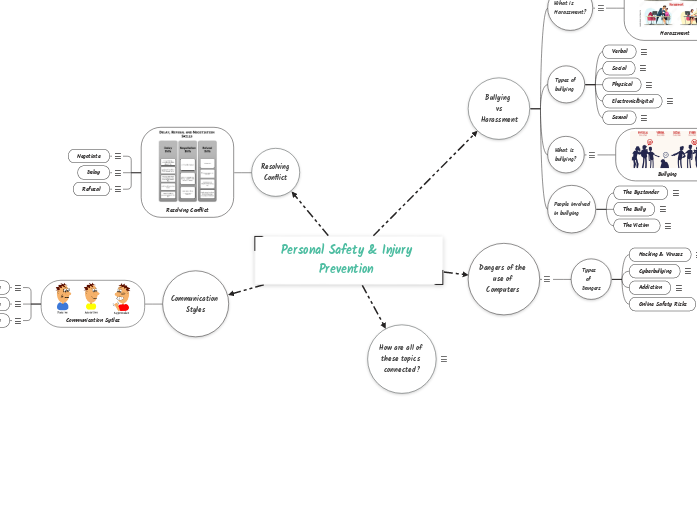
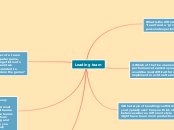

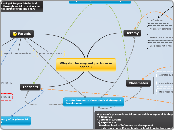
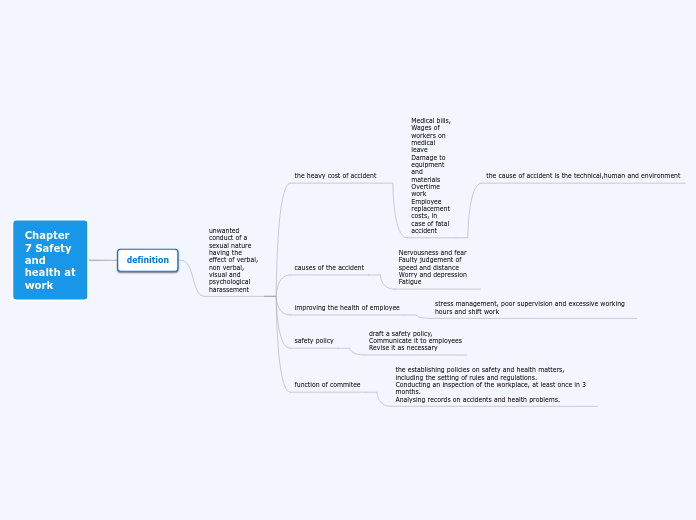







/girl-getting-bullied-in-high-school-hallway-505845246-59552e943df78cdc29bf5c54.jpg)










